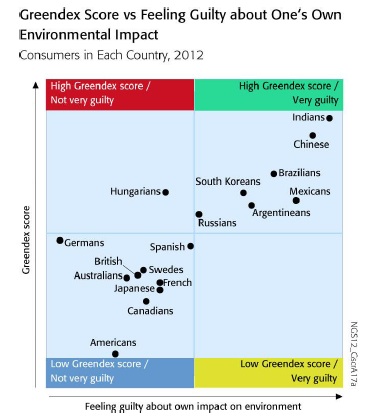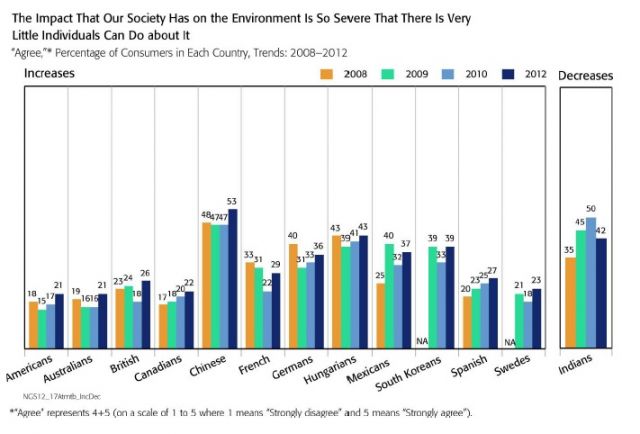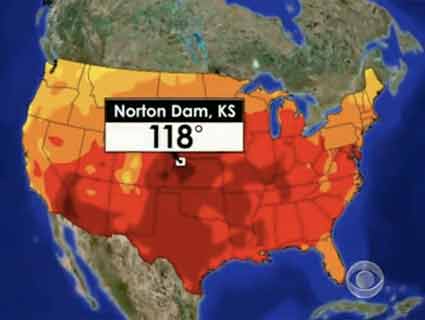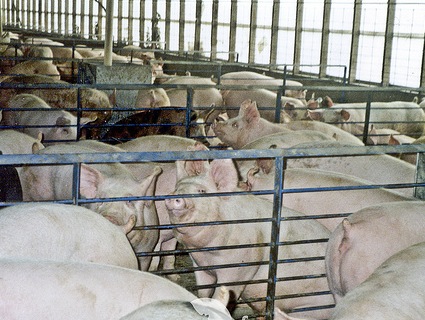
<a href="http://www.flickr.com/photos/renaissancechambara/5492329989/sizes/z/in/photostream/" target="_blank">renaissancechambara</a>/Flickr
Americans are less likely than our international friends to make sustainable consumer choices, but we’re also less likely to feel bad about it, according to the National Geographic Society’s annual annual Greendex report.
Researchers from NatGeo asked 17,000 people in 17 countries around the world about their habits—how much energy they use, how they get around, where their food comes from, what they think about environmental issues. And in their results, released on Thursday, they found that American consumers were the “least sustainable” for the fourth year running. India, China, and Brazil—three of the biggest emerging economies in the world—scored the highest on the survey.
It’s probably not a big surprise that the United States came in last place, given our gargantuan environmental footprint and our general love of all things unsustainable—big cars, big houses, meat, air travel, etc. But what’s more interesting in their findings is that people in developing countries, who tend to have much less of a personal environmental impact, actually feel the most guilt about it. “The research finds a positive relationship between the extent to which people feel guilty about their impact and the Greendex scores of average consumers in the same countries,” the study found. Meanwhile, consumers in the US didn’t really feel all that bad about their impact:

Even more interesting: The survey found that people in countries that were the least likely to make sustainable choices—which, after the US, includes Canada, Japan, and France—were also more likely to feel like they could have a positive impact on the environment. People in developing countries, while more likely to report practicing sustainable behaviors, also said that they didn’t feel like individuals could do much to affect the environment:












